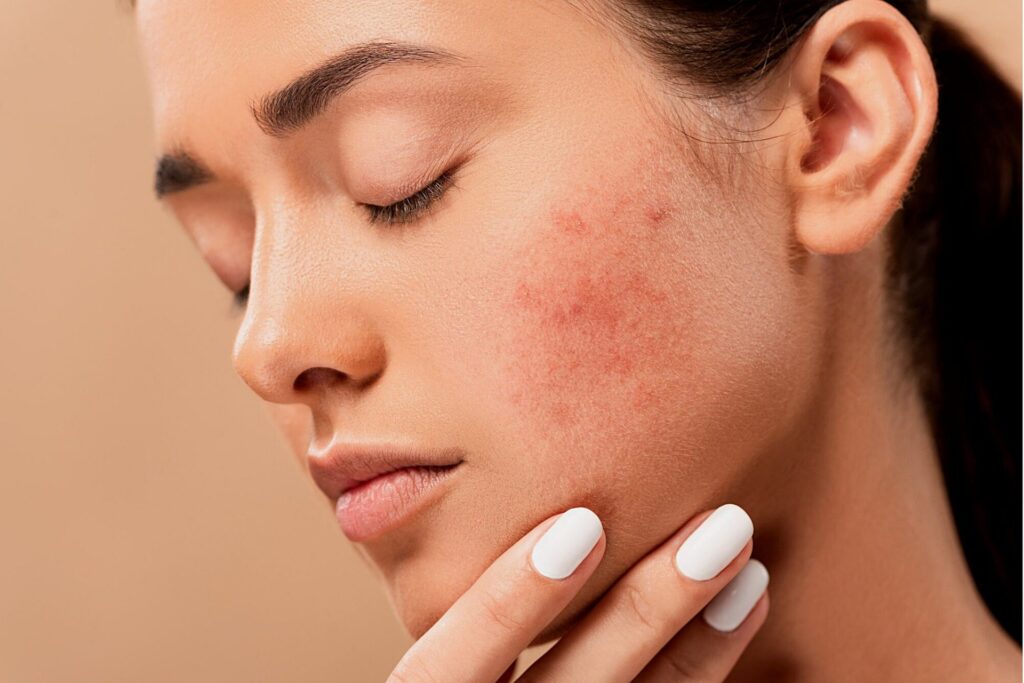Acne is one of the most troublesome skin conditions that leaves many people with low self-confidence and frustration. Acne scars are something that does not leave when the condition is healed. There’s nothing you can do to avoid these scars, however, there are remedies to get rid of them.
Scars and discoloration are signs of injury to the skin. Acne, one of the most common skin-related conditions, is caused due to excessive production of oil which leads to bacterial infections and inflammations. When the skin tries to repair itself, what’s left behind is red, pink, or brown marks.
Acne scars do not have to remain permanent skin irregularities that remind you of your bothersome conditions. There are many home remedies and acne scar treatments that are aimed to lighten or completely remove acne scars.
Home remedies:
Various natural solutions are available to help you combat acne scars. These remedies can be made with ingredients found at home or can be over the counter medication that helps manage acne and the appearance of scars. Here are a few solutions that many people are experts consider helpful:
- Salicylic Acid: Salicylic acid is a naturally occurring substance that is often used as an ingredient in many skincare routines. It is also found in most of the acne scarring products as it helps in clearing out dirt, dead skin cells, and other substances that clog the pores of your skin and cause acne.
It also helps in reducing swelling and redness caused by acne, minimizing the scarring. This substance is beneficial for almost all scar types and makes a great addition to your skincare routine. Always conduct a patch test before using this, as it might cause irritation or dryness on sensitive skin types.
- Retinoids: Topical retinoids are often used to get rid of acne scars. Retinoids can block inflammation, reduce acne scarring, and speed up cell regeneration. Topical retinoids can also lighten hyperpigmented acne scars, even for people with the darkest skin tones.
However, it is important to know that retinoids can sensitize your skin to the sun. If you do use this substance, remember to use sunscreen when you’re going outdoors.
- Alpha Hydroxy acids: Alpha hydroxy acids are used to help treat acne scars. They help in ridding the skin of dead cells and can even prevent the clogging of pores. AHAs are a mild form of acid and they scrape away the outermost layer of the skin.
This results in fresh, new skin from underneath appearing on the surface. Many dermatologists recommend this for treating acne scars and the discoloration that comes along with it.
- Natural remedies: Many people use natural remedies made of plants or natural extracts to help clear up acne scars. The science behind a few may be unclear but it works for a lot of people.
Some remedies include using coconut oil, shea butter, aloe vera gel, honey, lemon juice, and more. It is good to note that these will react differently on different skin types, so ensure to do a patch test and consult your dermatologist before trying these.
Medical Treatments:
Several treatments are available today that focus on reducing acne scars. A dermatologist might recommend one of these treatments if no home remedy is working out for you. Some of the treatments include:
- Chemical peels: Chemical peels are made up of large water-filled proteins that are used to remove the top layer of the skin, leaving behind fresh, unscarred skin. There are different types of chemical peels and are recommended depending on the patient’s skin type and condition type.
The peels aren’t like the peels you find at stores to rejuvenate and refresh your face. They’re stronger and therefore most of them cannot be used at home. You can try multiple peels at your doctor’s recommendation to see which one works well for you.
- Injections: Injections like those of corticosteroids can help with treating raised acne scar tissue. This is used if a person suffers from hypertrophic or keloid scars. The treatment consists of a series of injections and should be done by a trained dermatologist.
- Dermal filler: In this procedure, dermatologists use soft tissue fillers to reduce the appearance of acne scars. Choosing a filler that consists of collagen-based products are preferred.
Apart from this, your dermatologist might also recommend removing fat from one body part and using it as a filler. These work best for atrophic scars but can be temporary, lasting anywhere from 6 to18 months.
Many other acne scar treatments can be recommended to you. Finding a good dermatologist to discuss the best form of treatment will benefit you in the long run. Remember, no matter how bad your scar is, there is a treatment out there for you.
